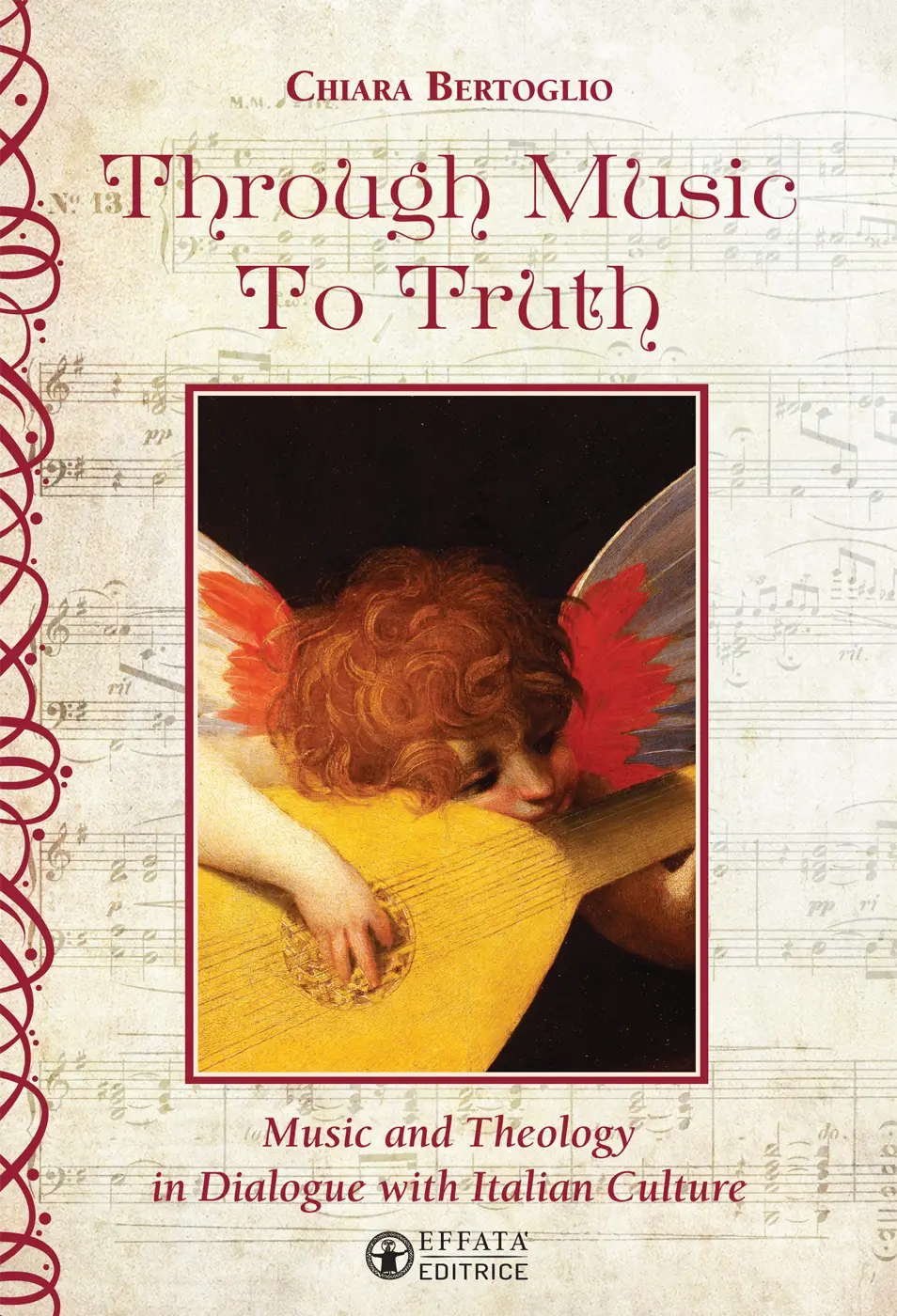Through Music To Truth
Music and Theology in Dialogue with Italian Culture
di Chiara Bertoglio
Autore
Through Music To Truth
Music and Theology in Dialogue with Italian Culture
di Chiara Bertoglio
Can music be a gateway to truth? And how can this happen? This book explores the fascinating narrative of the relationship between music and faith, in dialogue with major figures of the Italian culture. Dante’s itinerary to God in the Divina Commedia can be described as a musical path; the popularity of Verdi’s Va’, pensiero dovetails with Italy’s recent history and expresses the feelings and prayers of the Istrian exiles; the influence of Petrarch on European poetry and music is felt in J. S. Bach’s sacred output, which also comprises his own transcription of a Marian devotional work by Pergolesi. Each of the four chapters of this book focuses on one of these four leading characters of Italian history (Dante, Petrarch, Pergolesi and Verdi), whose artistry shaped our culture. They also created new ways to express the splendour of truth, which transforms aesthetic enjoyment into the contemplation of the ultimate Good, the radiant beauty of God.
—
Dante, Petrarch, Pergolesi, Bach and Verdi: through beauty, culture and music to the splendour of truth.
Contenuti extra
Please wait while flipbook is loading. For more related info, FAQs and issues please refer to dFlip 3D Flipbook Wordpress Help documentation.
Please wait while flipbook is loading. For more related info, FAQs and issues please refer to dFlip 3D Flipbook Wordpress Help documentation.
Indice
- Introduction pag. 5
- Abbreviations and remarks » 8
- Abbreviations: » 8
- Remarks: » 9
- Chapter One
- The polyphony of communion in Dante's Commedia » 11
- State of the art » 11
- A musical itinerary » 13
- Inferno: the anti-liturgy of divine love » 14
- Purgatorio: a musical healing for individuals and community » 18
- Paradiso: the polyphony of praise » 23
- Echoing the Trinity's reciprocal singing » 26
- Notes » 30
- Literature » 34
- Chapter Two
- "May the Lord inspire in thee an accord": the Istrian exiles and Verdi’s Va’, pensiero » 41
- A Historical Introduction » 41
- The Exiles’ Meetings » 44
- The Function of Va’, pensiero in Italian History » 46
- Studying the Va’, pensiero and its role for the exiles » 48
- Phenomena of "Appropriation" » 51
- Notes » 55
- Literature » 58
- Chapter Three
- The mother, the sinners and the cross » 61
- Introduction » 61
- Pergolesi’s Stabat Mater » 62
- The Mater Dolorosa » 62
- The Stabat Mater » 65
- Music » 66
- Pergolesi’s setting of the Stabat Mater » 66
- Pergolesi’s Stabat Mater in Lutheran Germany » 69
- Bach’s Tilge, Höchster, meine Sünden » 70
- Luther and the Virgin Mary » 71
- Bach and the Virgin Mary » 73
- Bach and Pergolesi » 77
- Occasion for Bach’s paraphrase » 77
- Context » 79
- Comparisons of lyrics and music » 81
- Textual comparisons » 81
- Musical interventions » 84
- Theological interpretations and conclusions » 92
- Notes » 94
- Literature » 97
- Chapter Four
- “Mit Harfen und mit Zimbeln schon”: Bach’s Cantata BWV 140 as a case-study for a theological interpretation of music » 107
- Introduction » 107
- Purpose, method and articulation » 108
- Johann Sebastian Bach’s Cantata BWV 140
- “Wachet auf, ruft uns die Stimme” » 111
- Cantata BWV 140 in context » 111
- State of the art » 112
- Between Petrarchism and Pietism, mysticism and devotion » 114
- The Song of Songs in the music of Bach’s era » 120
- Cantata BWV 140: its liturgical context and structure » 122
- Nicolai’s Chorale » 124
- The libretto » 130
- Musical features » 136
- 1. Wachet auf, ruft uns die Stimme » 136
- 2. Er kommt » 138
- 3. Wenn kömmst du » 139
- 4. Zion hört die Wächter singen » 147
- 5. So geh’ herein zu mir » 150
- 6. Mein Freund ist mein » 151
- 7. Gloria sei dir gesungen » 155
- Theological perspectives » 155
- Appendix – English translation of the libretto » 163
- Notes » 168
- Literature » 173
- Index of names » 179


 Chiara Bertoglio
Nata a Torino nel 1983, concertista di pianoforte e musicologa....
Chiara Bertoglio
Nata a Torino nel 1983, concertista di pianoforte e musicologa.... 


